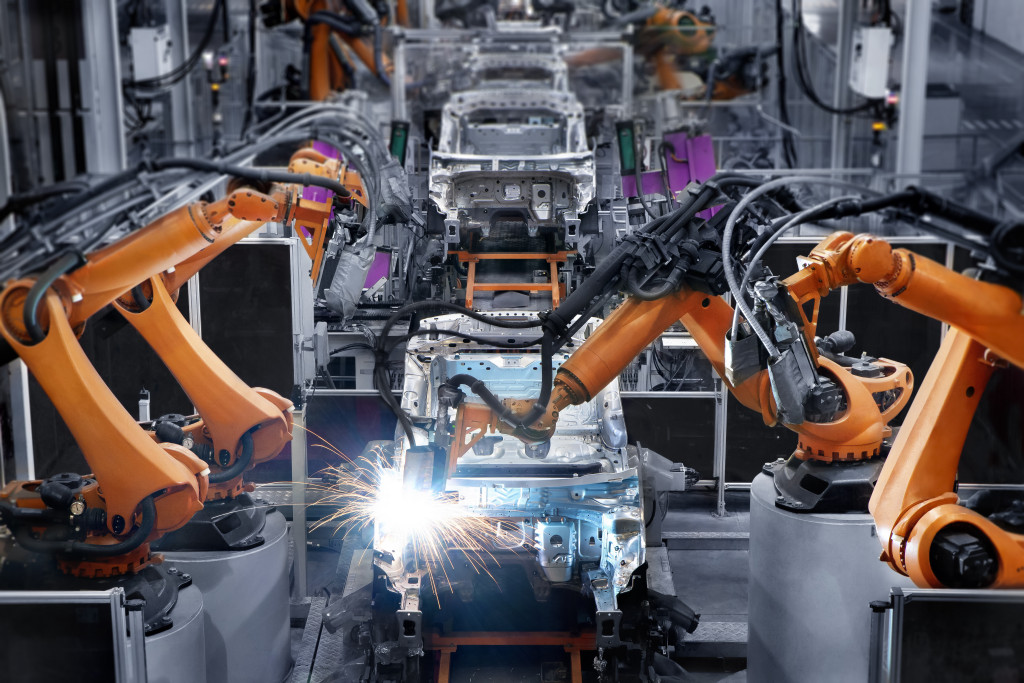The manufacturing industry can be a very profitable venture for aspiring entrepreneurs. With careful planning and execution, a business in this sector can successfully achieve its goals and objectives.
However, it can be challenging to build it from scratch. You must create a business plan, purchase a commercial lot or establishment, and identify the necessary machinery and equipment. After that, you will need to get the proper licenses and permits and hire a skilled workforce.
On top of those things, you will also have to follow legal requirements before you can even operate. It is necessary to practice due diligence in this area to avoid any issues with the government. Here are a few things you might have to secure for your site.
Zoning Permits
The first step is to check with your local zoning board or department to see what business activities are allowed in the area where you want to set up shop. They will have a list of requirements for you to follow, such as getting a conditional use permit.
You will likely need this document before starting construction on your manufacturing site. The application process can take several months, so starting early is essential.
Building Permits
After securing a zoning permit, you must get a building permit from your local municipality. It will allow you to construct or renovate your chosen property according to the building code.
You must submit several documents, including your building plans, insurance proof, and occupancy certificate. The approval process can take several weeks, so starting early is essential.
You might need a special permit for the activity you plan for the manufacturing site. For example, if you’re handling hazardous materials, you must get a license from the Department of Environmental Protection.
Company Registration Number
A company registration number (CRN) certificate is an essential document for your manufacturing site. It proves that your business is registered with the state and in good standing. The CRN certificate is vital for a few reasons.
First, it lets customers and suppliers know you are a legitimate business. You can reassure them that you are abiding by the law and are taking the necessary steps to ensure safety and quality.
Second, it helps you secure funding. Lenders and investors will want to see that your business is registered and has a good reputation. They will be more likely to invest in a company compliant with state regulations.
Lastly, it protects you from legal action. If there is a dispute with a customer or supplier, you can use the CRN certificate as evidence that you are a legitimate business. It can help you avoid costly litigation expenses.
Overall, the CRN certificate is an essential document for any manufacturing site. It demonstrates that you are taking your business seriously and are complying with all applicable laws and regulations.
Safety Permits
Depending on the type of product you manufacture, you might need to get a safety permit. This document certifies that your products are safe for consumers and meet all the necessary safety standards.

For example, you must get a food safety permit if you’re manufacturing food products. This permit gets issued by the Department of Health and ensures that your products are safe for human consumption.
You will also need a permit if you’re handling hazardous materials. This permit gets issued by the Department of Environmental Protection and ensures that you take the necessary precautions to protect workers and the environment.
Business License
Lastly, you must get a business license from your local municipality. This document allows you to operate your business within the city or county limits.
You will need to apply, along with supporting documents, such as your business plans, proof of insurance, and occupancy certificate. You might need a special permit for the activity you plan for the manufacturing site.
Some of the business license you will need includes:
- A DBA or “doing business as” certificate
- A resale permit
- An employer identification number (EIN)
- A sales tax permit
Operating a manufacturing site without the proper permits and licenses is illegal. It can result in hefty fines or even jail time. Ensure you are familiar with all the legal requirements before setting up your manufacturing site.
After securing all the necessary permits and licenses, you are ready to start construction on your manufacturing site. But before you break ground, you need to do a few more things to ensure your business complies with the law.
Conclusion
Entrepreneurs entering the manufacturing industry must be patient, detail-oriented, and persistent. There are a lot of legal requirements for setting up a manufacturing site. But by following the steps in this guide, you can ensure your business complies with all the applicable laws and regulations.




